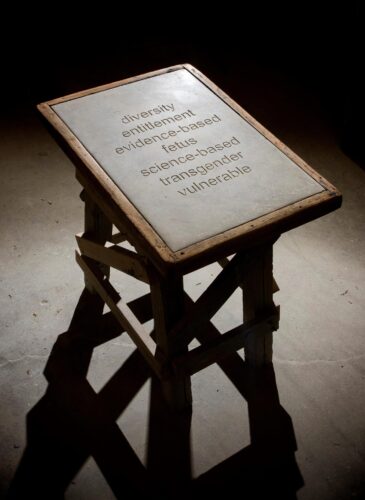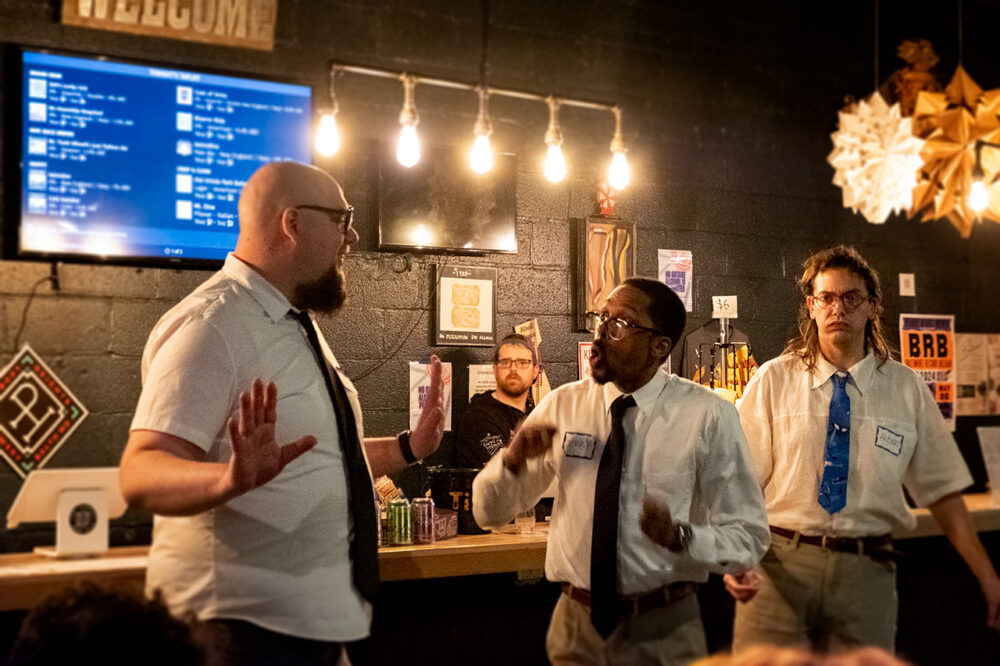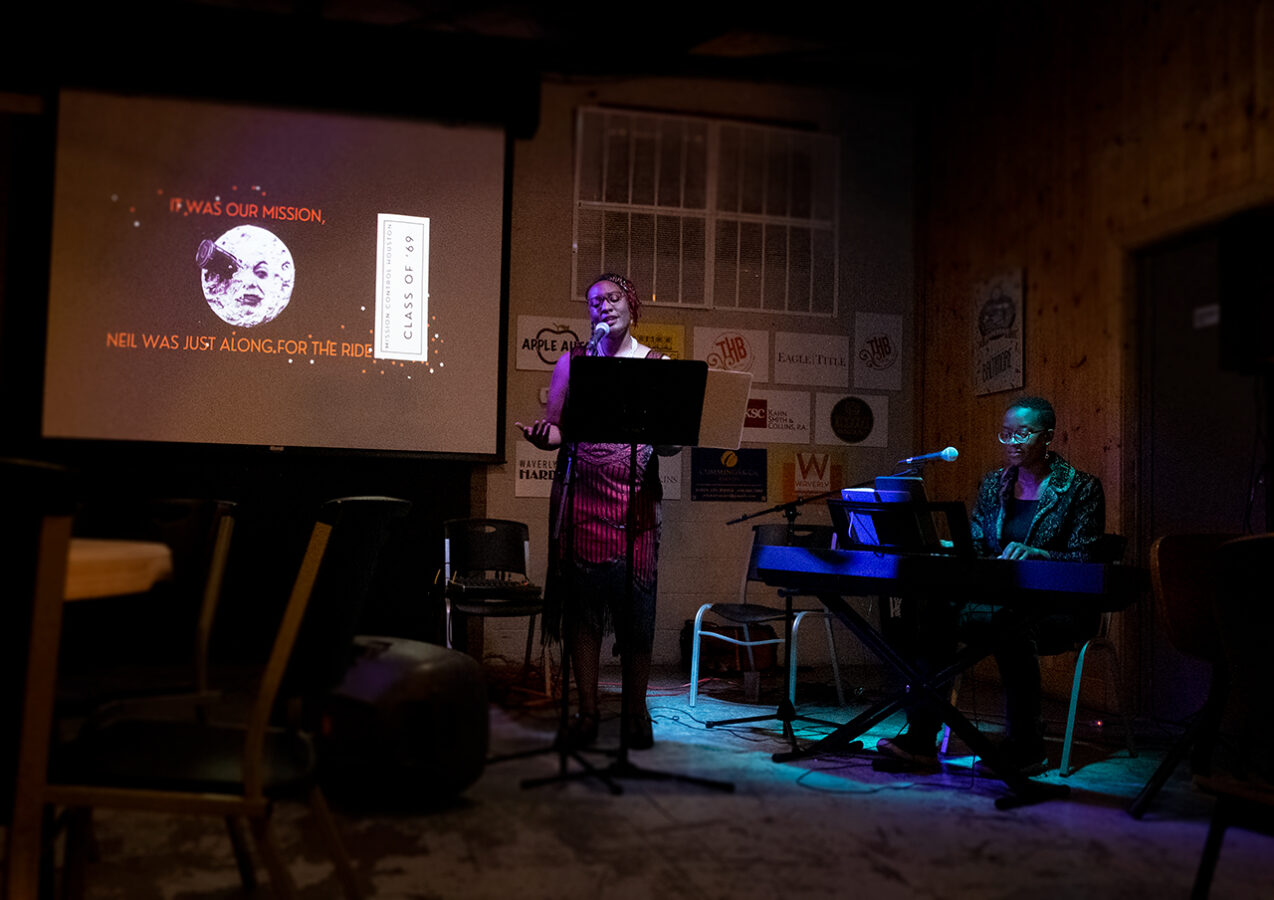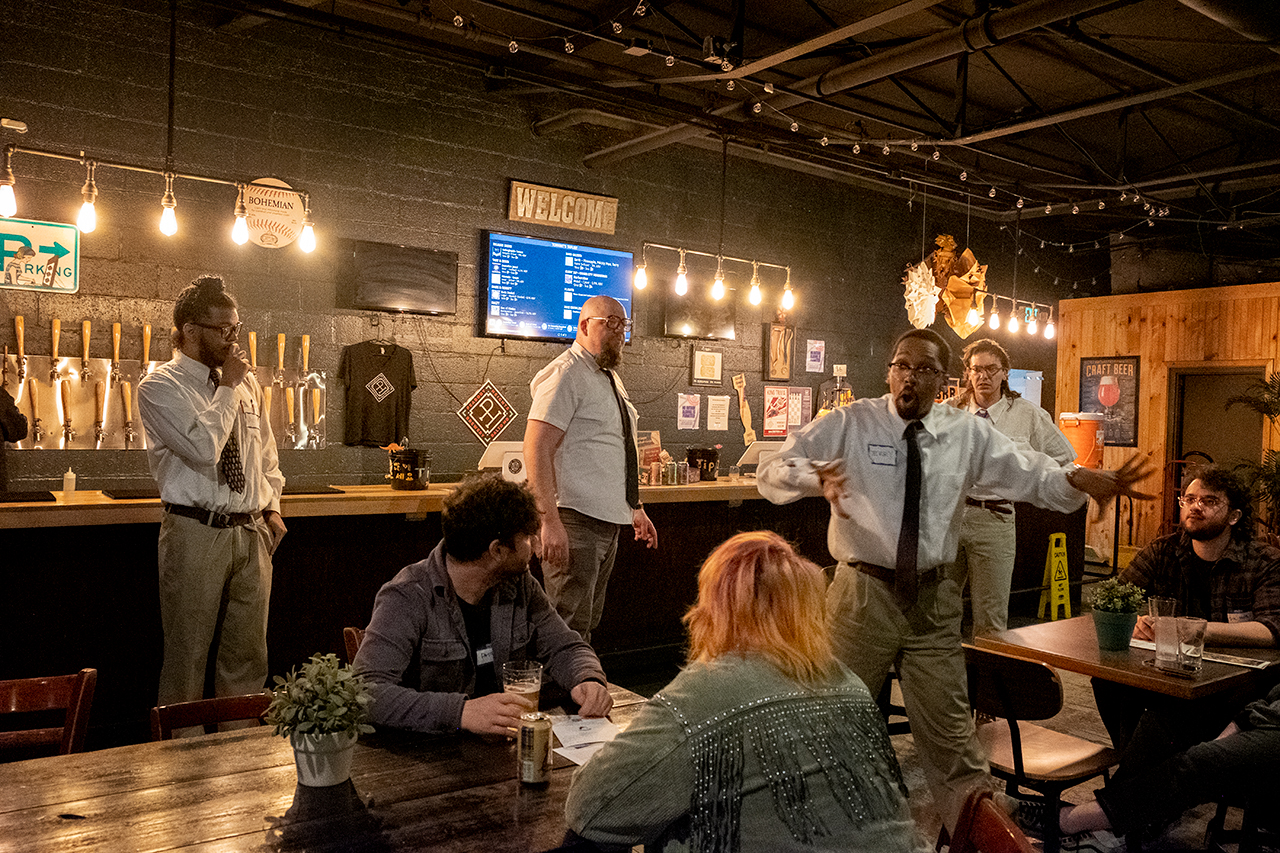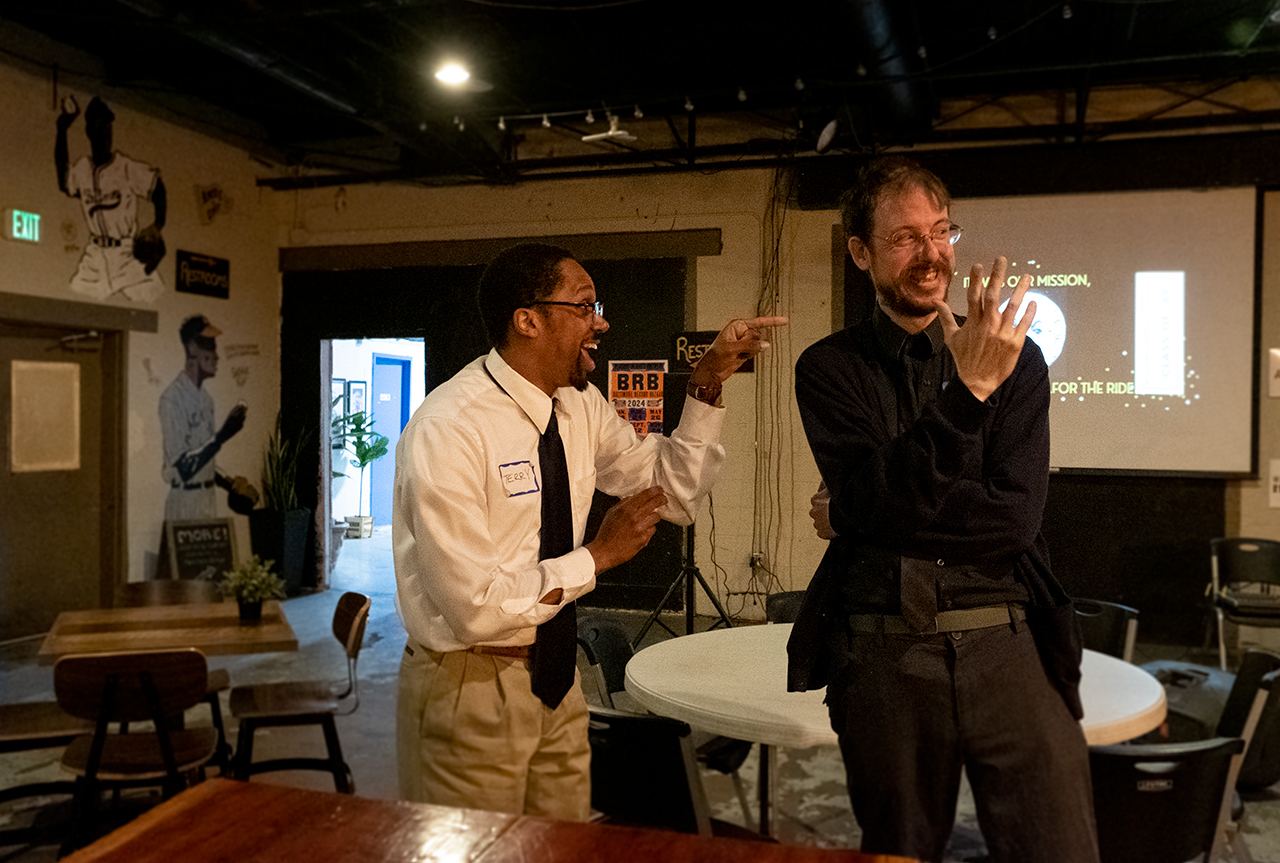The sister and brother team of Lucia A. Treasure (director) and Thomas Treasure (writer) describe Pigeonaire‘s production of Sailing Over a Cardboard Sea as “an immersive theatrical spectacle that explores memory and the lush, life-giving moon.” The show, however, is hardly a piece of lunacy; it is a thoughtful reflection on the responsibility that scientists have to their societies.
Treasure’s play imagines a reunion of the Apollo 11 Mission Control team, the “nerds” who managed the first landing of a human on the moon in 1969. Thirtieth reunions usually turn veterans, athletes, and even classmates into affectionate sentimentalists. Compared to 1969, however, 1999 was an anxious, skeptical time, and the six men who have come to the reunion (easily identified by their white shirts and dark ties) find themselves wondering what the Apollo 11 mission was all about.
Ranging through the taproom at the Peabody Heights Brewery, shouting, climbing on chairs, and all but coming to blows, the engineers argue about whether the purpose of the lunar landing really was scientific research.
Rick (Connor M. Kizer) claims sourly that “scientists have always been pawns of the military.” Terry (Derek Cooper), who resembles another American iconoclast, Malcolm X, outrages his colleagues by announcing that the entire lunar landing is a myth; the famous television footage was shot in a warehouse in Kansas City. Fred (Jake Budenz) takes the debate to a new level by claiming that World War II was a Hollywood production, directed by John Ford and featuring Charlie Chaplin. National myth-making is as illusory as the backdrop in the Harold Arlen song, “It’s Only a Paper Moon.”

